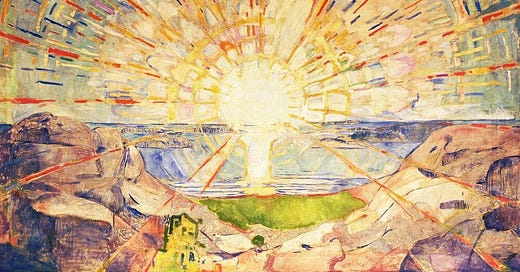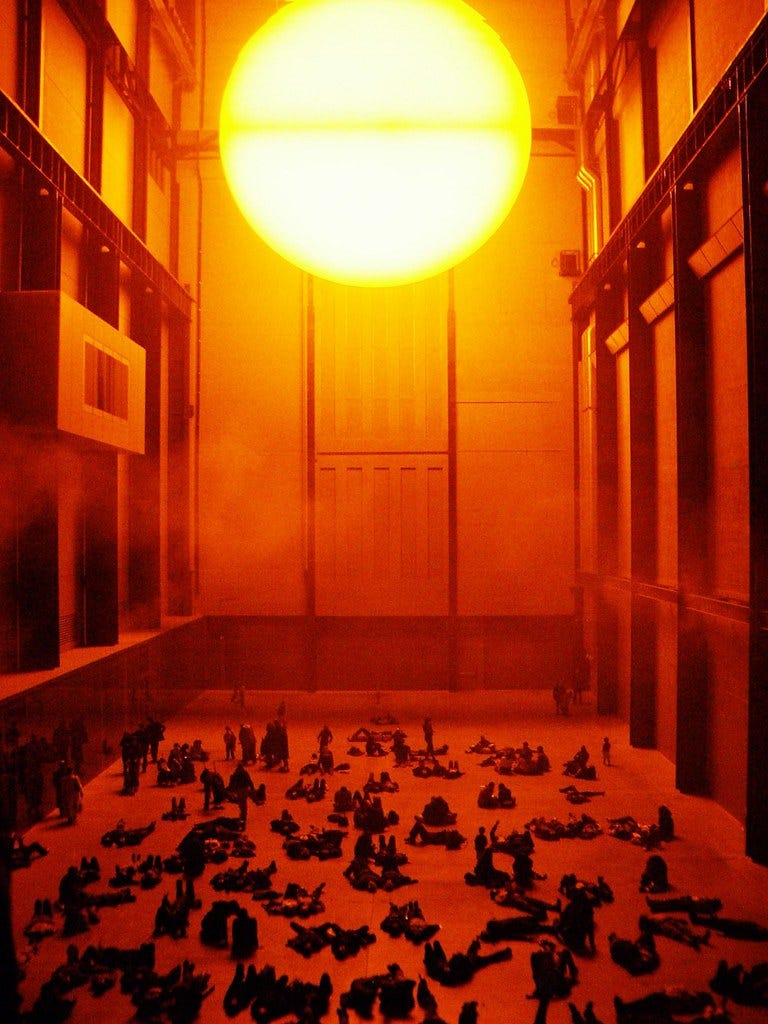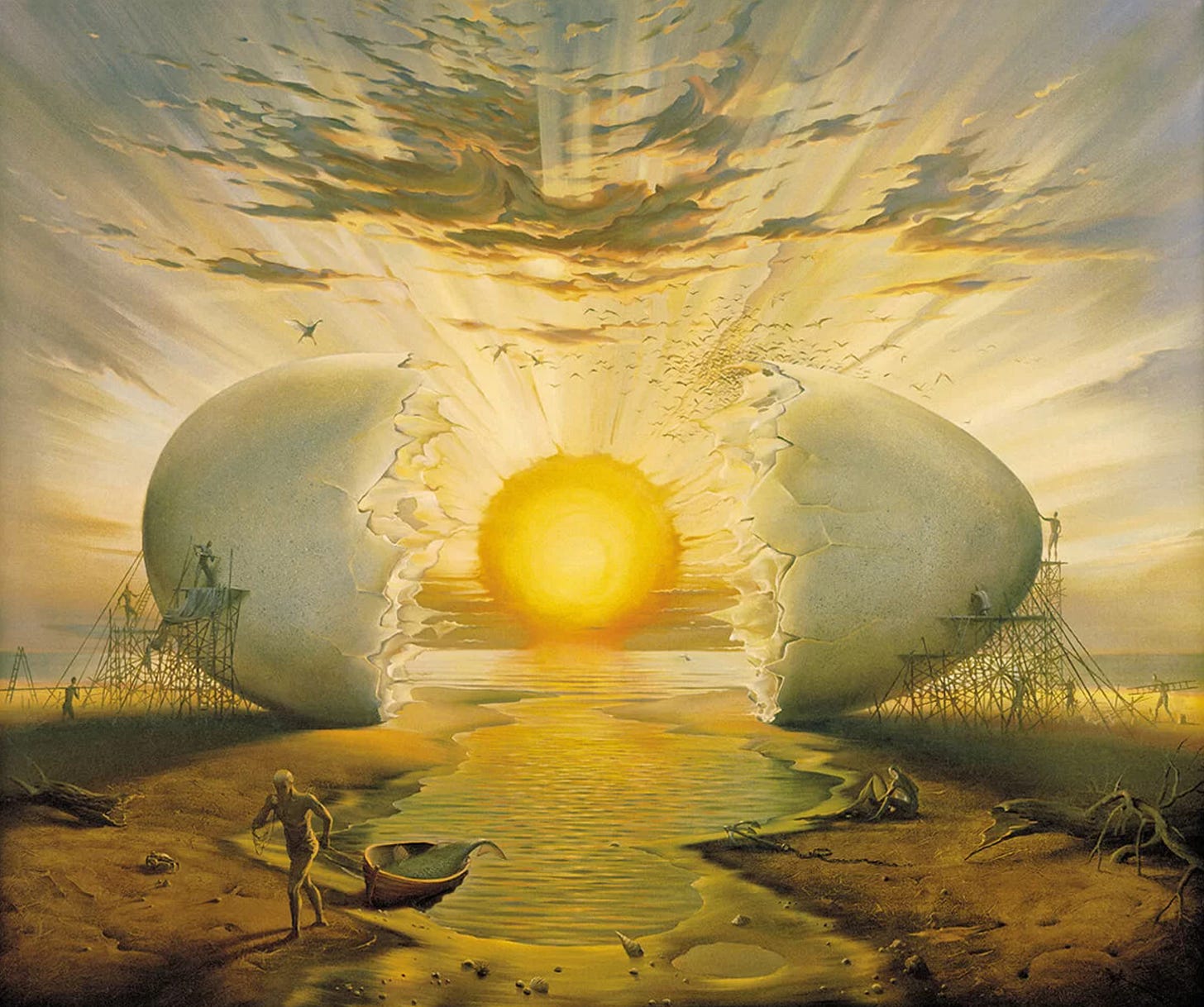#49. SUN / SOL
I need to see and know my inattention / el que necessito és mirar i conèixer la meva falta d’atenció
There is another Loneliness
That many die without —
Not want of friend occasions it
Or circumstances of Lot
But nature, sometimes, sometimes thought
And whoso it befall
Is richer than could be revealed
By mortal numeral
Emily Dickinson
SUN
Creative, fertile and nutritious power. In India, the sun god Surya is the eye of the supreme god Varuna, in the ancient Persian polytheistic religion the sun was the eye of the supreme deity Ahura Mazda, for the Greeks Helios was the eye of Zeus, for the Egyptians the sun was the eye of Ra, in Islam the sun is the eye of Allah. The sun sees everything and knows everything. Hymns to the sun, worship of their benevolent force and poetic praise of heavenly light are at the basis of religious experience. The strength of the sun is enough to start a religion. Divine eye, active principle and vital energy source. Will and determination. For Jung, the sun is the image of totality. However, the sun also has a dark side associated with its daily disappearance over the horizon. The Rigveda, the sacred hymns of Hinduism, describes an ambivalence between luminosity and blackness in which the dark reverse of the sun is related to death. Alchemy refers to the black sun, Sol Niger, to define the chaotic state of the unconscious in which the raw material is unordered. Emerging again from nocturnal depths involves a conscious effort and suffering to ascend to the twelfth of noon. The myths of Icarus and Phaeton remind us the danger of going too far without being prepared to have contact with the unimaginable primordial energy of the sun.
“I believe I need to pay attention when, in fact, I need to see and know my inattention.”
Jeanne De Salzmann
Hi ha una altra Soledat
sense la qual molts han mort.
La falta d’amics no n’és la causa,
ni la circumstància de la seva Sort.
Només la natura hi pensà a vegades, a vegades,
i aquells als quals
és atorgada són més rics del que pot revelar-se
amb nombres mortals.
Emily Dickinson (traducció de Marcel Riera)
SOL
Força creadora, fèrtil i nutritiva. A l’Índia, el déu solar Súrya és l’ull del déu suprem Varuna, a l’antiga religió politeista persa el sol era l’ull de la divinitat suprema Ahura Mazda, pels grecs Hèlios era l’ull de Zeus, pels egipcis el sol era l’ull de Ra, a l’islam és l’ull d’Al·là. El sol ho veu tot i ho sap tot. Els himnes al sol, el culte al seu poder benefector i l’elogi poètic a la llum celestial es troba a la base de l’experiència religiosa. La força del sol és suficient per fundar un religió. Ull diví, principi actiu i font d’energia vital. Voluntat i determinació. Per Jung, el sol és la imatge de la totalitat de l’ésser humà. No obstant, el sol també té un revers fosc associat a la seva desaparició diària a l’horitzó. El Rigveda, els himnes sagrats de l’hinduisme, descriuen una ambivalència entre lluminositat i negror en què el revers fosc del sol es relaciona amb la mort. L’alquimia parla del sol negre, el Sol Niger, per referir-se a l’estat caòtic de l’inconscient en què la matèria primera està desordenada. Emergir de nou de les profunditats nocturnes implica un esforç i patiment conscient per ascendir al zènit del migdia. Els mites d’Ícar i Faetó ens recorden el perill d’acostar-nos massa al sol sense estar preparats per entrar en contacte amb una energia primordial inimaginable.
“Crec que necessito parar atenció quan, de fet, el que necessito és mirar i conèixer la meva falta d’atenció.”
Jeanne De Salzmann









